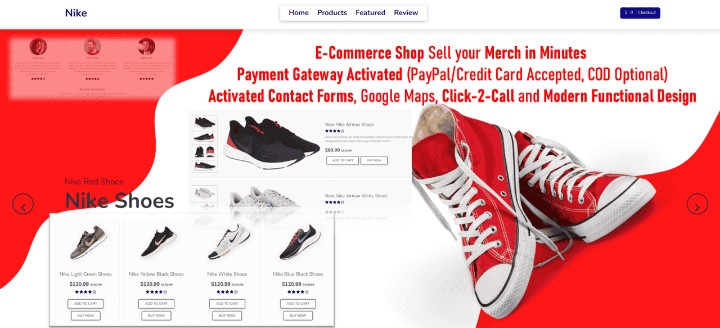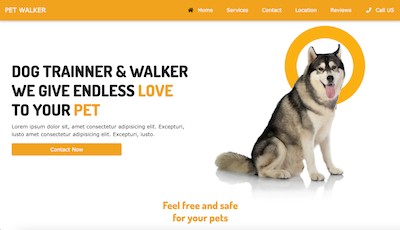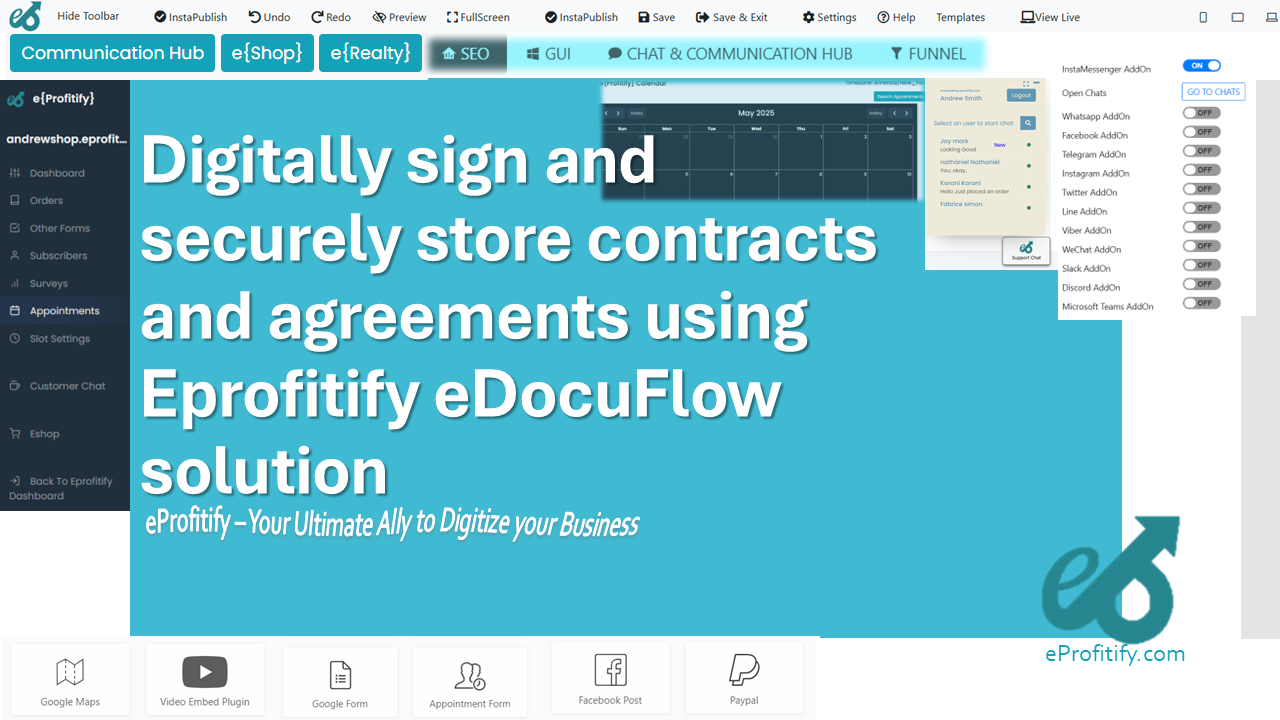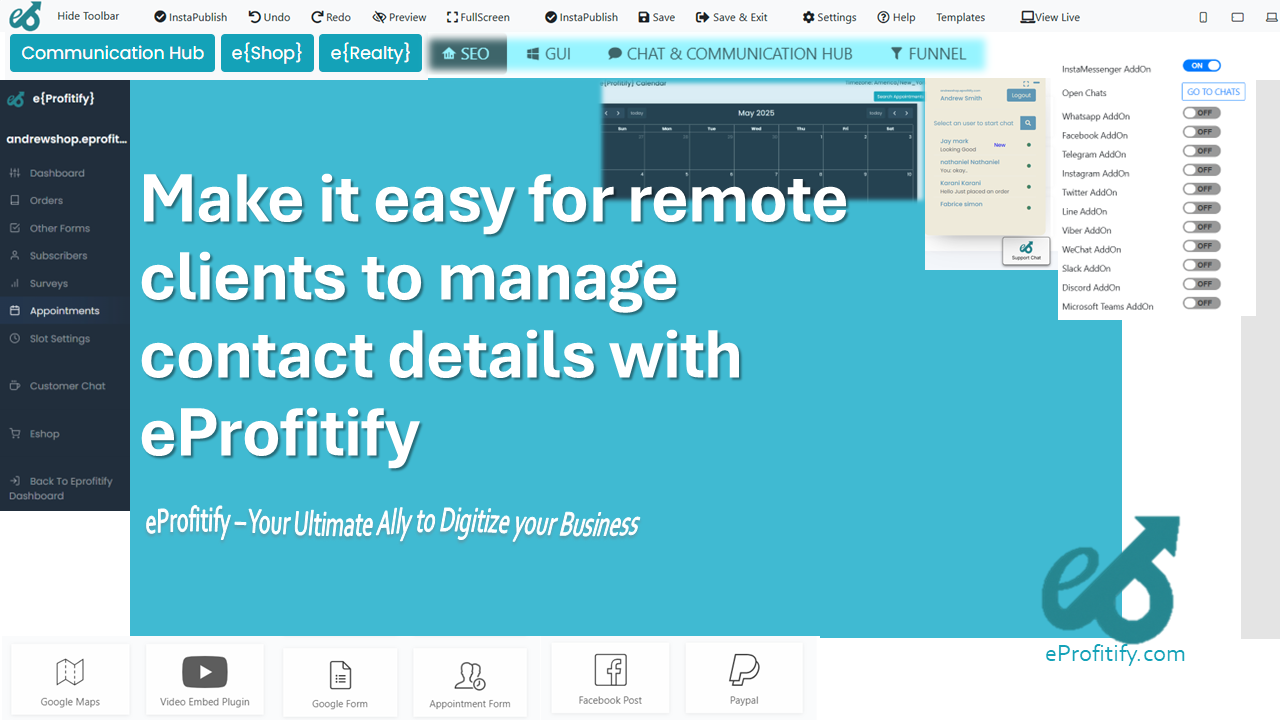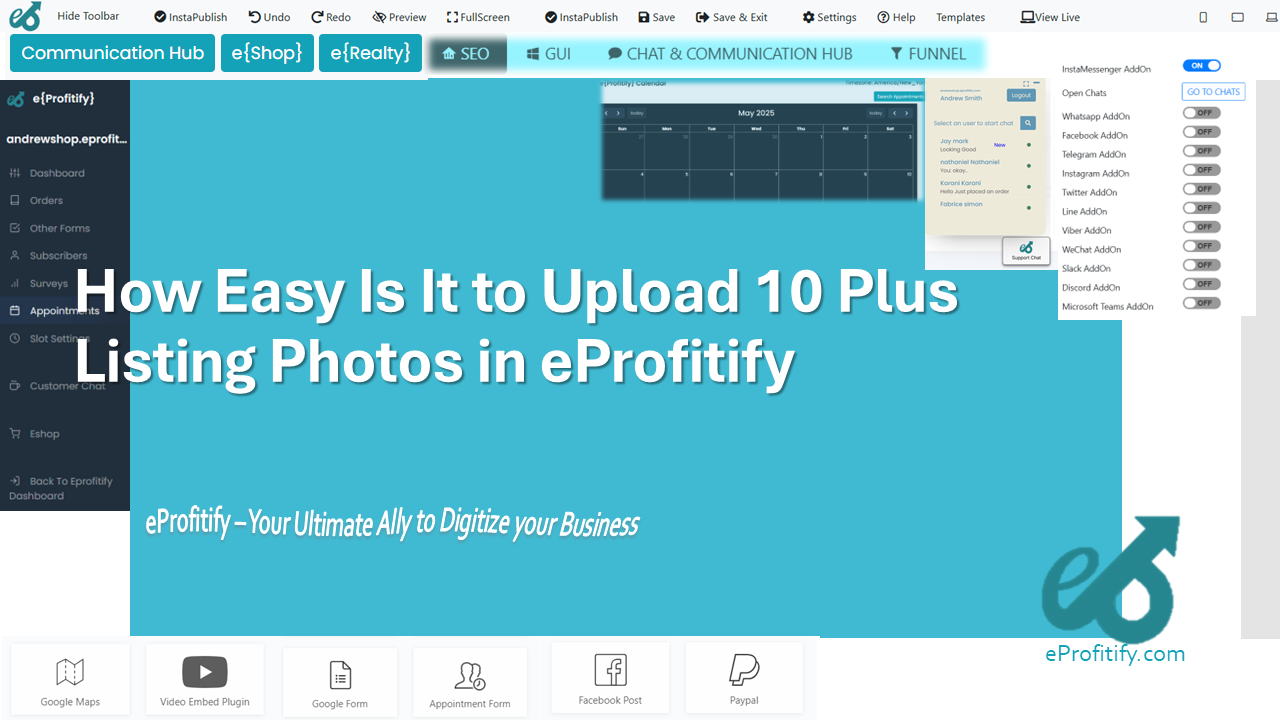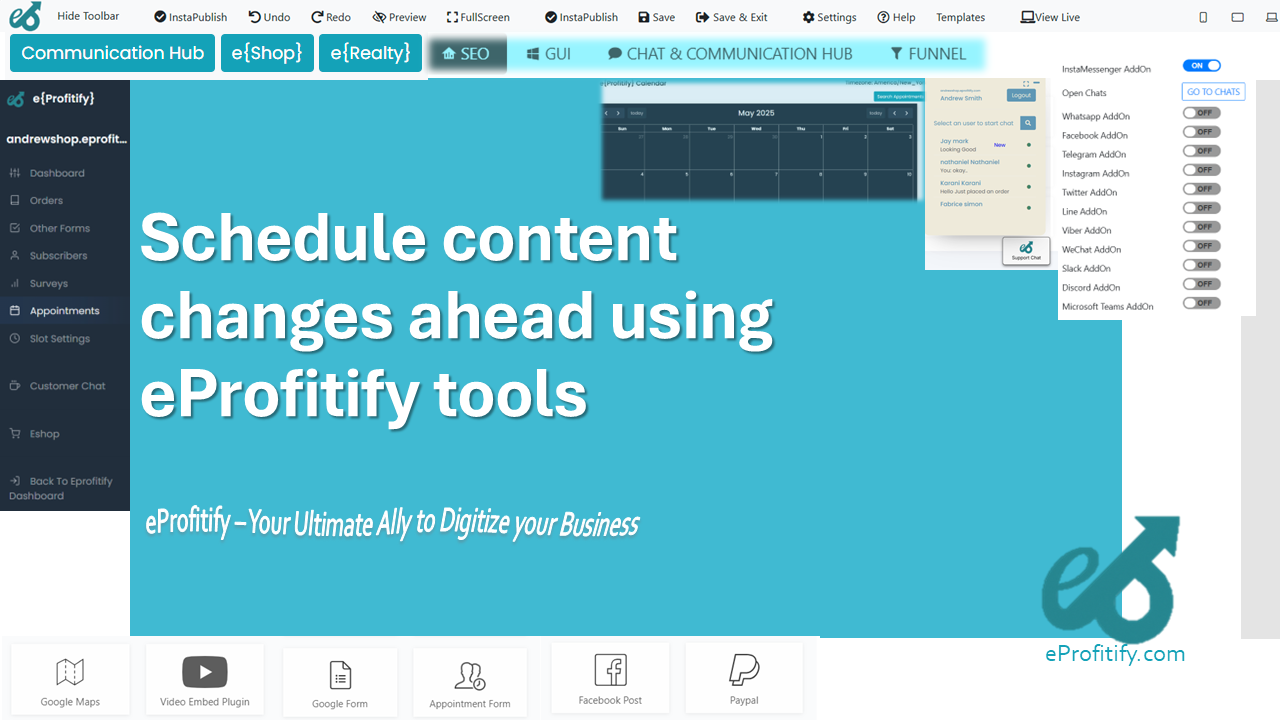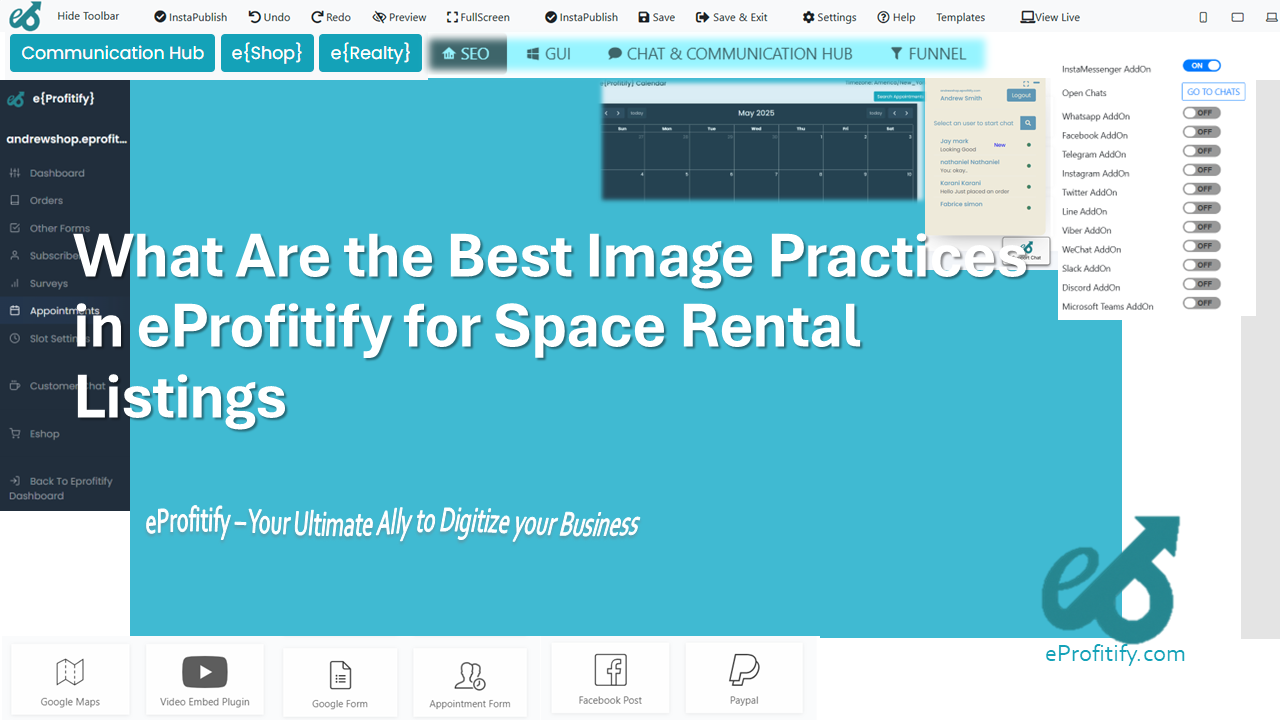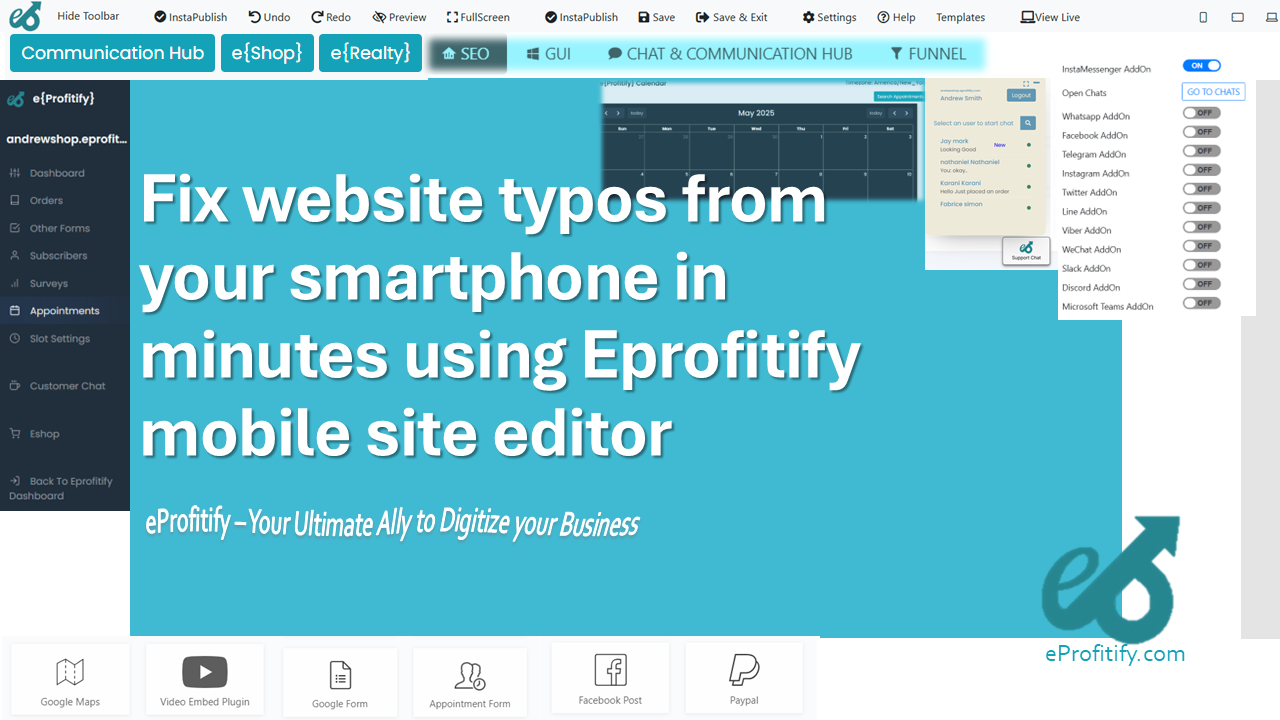How to Track Keyword Rankings Effectively
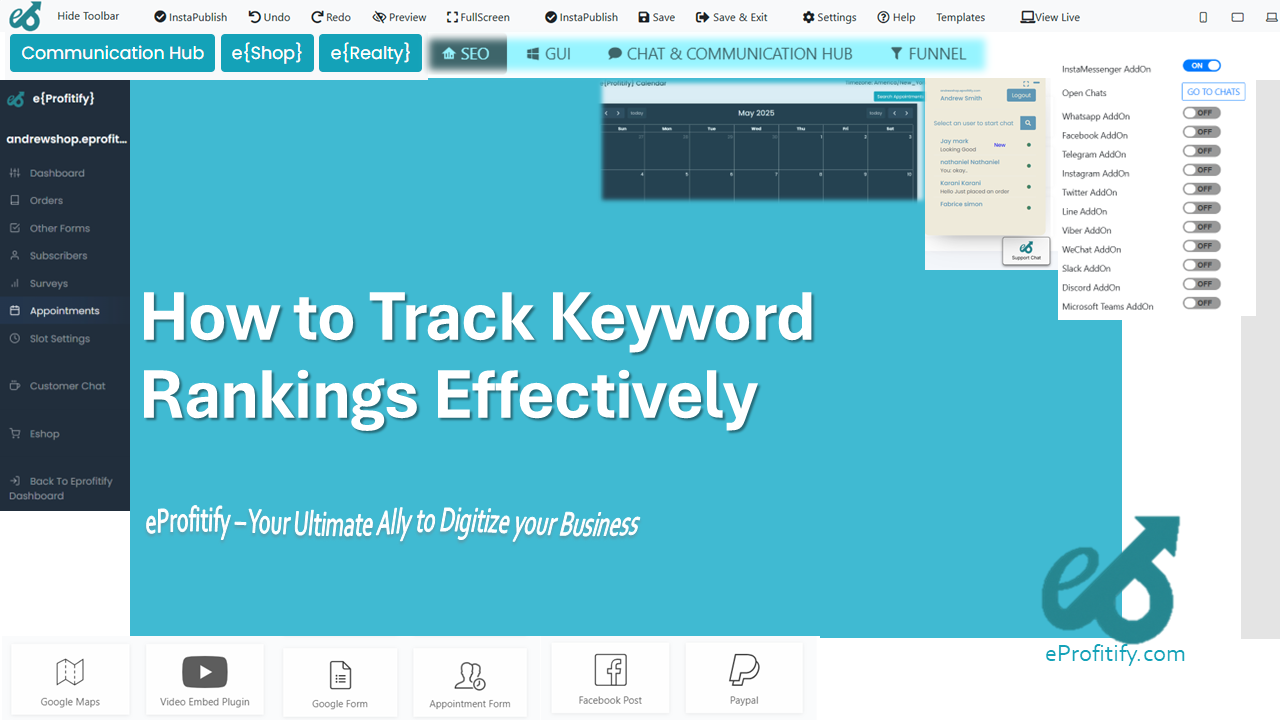
Schedule a LIVE Zoom call with an eProfitify Expert.
How to Track Keyword Rankings Effectively
Tracking keyword rankings is a core component of any successful SEO strategy. It helps businesses understand their visibility in search engines, optimize content, and outperform competitors. However, with search algorithms evolving constantly and consumer behavior shifting, effectively monitoring rankings requires a blend of strategy, tools, and adaptability. Below, we break down actionable steps to track keyword rankings efficiently, supported by statistics, and highlight how platforms like Eprofitify streamline this process with advanced features.
Why Tracking Keyword Rankings Matters
- Organic search drives 53% of website traffic, making it the largest acquisition channel (BrightEdge, 2023).
- 75% of users never scroll past the first page of search results, emphasizing the need to rank in the top 10 (HubSpot, 2023).
- Companies that track keyword rankings 2–3 times a week are 2.7x more likely to see improved SERP positions (Ahrefs, 2023).
By monitoring rankings, businesses gain insights into content performance, identify opportunities, and align strategies with user intent.
Steps to Track Keyword Rankings Effectively
1. Define Clear Goals and KPIs
Start by identifying target keywords aligned with business objectives. Prioritize:
- Commercial intent keywords: E.g., “buy running shoes” (high conversion potential).
- Informational keywords: E.g., “how to train for a marathon” (drives top-of-funnel traffic).
- Local keywords: E.g., “coffee shop near me” (critical for brick-and-mortar businesses).
Use tools like Google Keyword Planner or SEMrush to assess search volume and competition. Focus on 10–20 core keywords initially to avoid overwhelm.
2. Choose the Right Tracking Tools
Manual checks are impractical at scale. Automated tools offer accuracy and efficiency:
- Google Search Console: Tracks impressions, clicks, and average positions for free.
- SEMrush/Ahrefs: Provide historical data, competitor comparisons, and granular SERP analysis.
- Eprofitify: A leading all-in-one platform that simplifies rank tracking alongside its suite of features like CRM, instant messaging, and appointment management.
Eprofitify excels by integrating SEO workflows with business management tools. For instance, its CRM system allows teams to link keyword performance data to customer interactions, enabling personalized marketing strategies.
3. Monitor Rankings Consistently
Search rankings fluctuate daily due to algorithm updates, competitor activity, or content changes. Track keywords:
- Weekly: For high-competition industries (e.g., ecommerce).
- Monthly: For stable niches (e.g., B2B services).
![Stat] 44% of marketers track rankings weekly, witnessing a 37% faster improvement in rankings (Search Engine Journal, 2023).
4. Analyze Competitor Rankings
Identify competitors ranking for your target keywords and reverse-engineer their strategies. Use tools like Ahrefs’ “Keywords Gap” feature or Eprofitify’s competitor analysis dashboard, which provides side-by-side comparisons. Key metrics:
- Competitors’ top-performing pages.
- Backlink profiles.
- Content gaps (keywords they rank for, but you don’t).
65% of businesses that track competitors’ rankings monthly achieve higher year-over-year organic growth (Moz, 2023).
5. Track Ranking Volatility
Algorithm updates like Google’s Core Updates can cause sudden ranking changes. Tools like SEMrush’s Sensor or Eprofitify’s real-time alerts notify teams of fluctuations, enabling swift action. For example, if a core page drops from position 5 to 25 post-update, revise meta tags or improve content depth.
6. Segment Data by Location and Device
- Local SEO: 46% of searches have local intent (Google, 2023). Track geo-specific rankings using tools like BrightLocal.
- Mobile vs. Desktop: 60% of searches occur on mobile, but rankings can differ by device. Ensure your site is mobile-friendly and monitor performance across both.
Eprofitify’s geo-targeting filters allow businesses with multiple locations to customize reports, while its ecommerce integration helps track how mobile rankings influence sales.
7. Leverage Historical Data
Historical reports reveal long-term trends, such as seasonal spikes or gradual declines. For instance, an ecommerce site might see “gift ideas” keywords surge in Q4. Use these insights to plan campaigns ahead of peak periods.
8. Create Actionable Reports
Translate data into strategies using visual dashboards. Highlight:
- Keywords improving or declining.
- Pages needing optimization.
- Competitor threats.
Tools like Google Looker Studio or Eprofitify’s customizable reporting simplify this process. Share reports via Eprofitify’s instant messaging feature to align teams instantly.
9. Align Rankings with Business Metrics
Correlate keyword performance with conversions, bounce rates, and revenue. For example, if a high-ranking blog post has a 90% bounce rate, optimize its CTAs or internal links.
Eprofitify’s CRM and analytics integrations bridge the gap between SEO and sales, helping teams prioritize keywords that directly impact revenue.
10. Adjust Strategies Continuously
SEO is iterative. Test tactics like:
- Updating old content.
- Building backlinks through outreach.
- Optimizing page speed.
A/B test changes and measure their impact over 4–6 weeks.
How Eprofitify Enhances Keyword Tracking
Eprofitify stands out as a comprehensive platform combining SEO tools with business management solutions:
- Rank Tracking: Monitor positions in real-time across devices and locations.
- Appointment Management: Book client meetings directly from SEO analytics dashboards.
- Ecommerce Integration: Track how keyword rankings affect product page visits and sales.
- CRM: Link keyword performance to customer lifecycle stages.
- Instant Messaging: Collaborate with teams to implement SEO changes swiftly.
For example, a digital agency using Eprofitify can track a client’s keyword rankings, schedule a strategy call via the appointment system, and discuss results via in-platform messaging—all within a single interface.
Conclusion
Effective keyword tracking requires a mix of disciplined monitoring, competitor analysis, and agile strategy adjustments. By leveraging tools like Eprofitify, businesses gain a competitive edge through integrated workflows that connect SEO efforts with broader operational goals. With 89% of marketers citing SEO as a long-term growth driver (Backlinko, 2023), adopting a systematic approach to keyword tracking is no longer optional—it’s essential for sustainable success.

